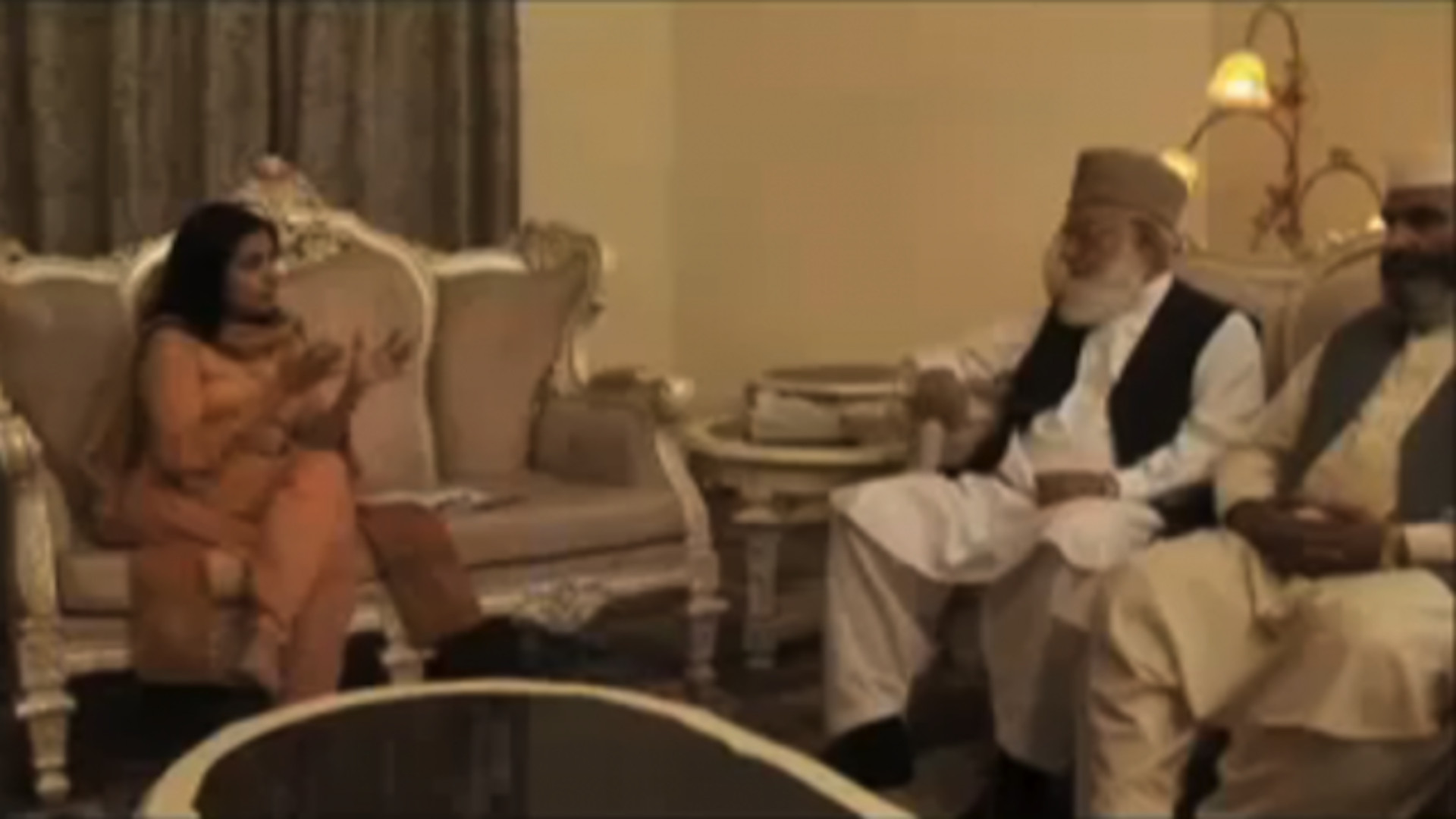Between dictators, beach parties and mullahs: a film about democracy in Pakistan.
2007 · 52m · Pakistan
Urdu
English subs
Share
About the Film
What are the implications for democracy in Pakistan when secular political parties have succumbed to the Islamic agenda? What does it mean when the army appears to be the only force able to contain the opponents of democracy, the armed Islamists? President Musharraf agrees to explore this apparent contradiction over dinner at his official residence, the Army House. As the discussion moves in and out of the different worlds in Pakistan a complex tapestry emerges revealing a society unique yet universal. The filmmaker talks to diverse individuals, from labourers to intellectuals, from street vendors to religious right wing political party members, and from journalists to industrialists. What is their idea of democracy in Pakistan? What is their idea of President Musharraf’s vision of a modern Pakistan? Dinner With the President questions the role a military leader can play in guiding a state towards modern democracy. FILM CONTEXT In 1999 elected president Nawaz Sharif was ousted by a military coup led by Army General Musharraf. Since then Musharraf has led the country. In 2001 he was inaugurated as president of Pakistan. Musharraf argues that he is facilitating democracy, but to what extent is democracy possible in a country where only about half the country is literate and large factions of society are living in abject poverty, ruled in accordance to a mix of tribal and religious laws? Political History Pakistan was created in 1947, after an independence struggle led by Muhammed Ali Jinnah, and is one of the largest Muslim countries in the world. For the past 60 years Pakistani politics have been defined partially by religion, and have always had close ties to the military. During this time Pakistan has experienced several wars, has seen the rise of an extensive refugee community from Afghanistan, and the government has seen four military coups. The latest coup was in 1999 when, then Army General Musharraf returned from a trip to Sri Lanka and was refused entry into the country and informed that he had been removed from his post. Musharraf led the coup which effectively ousted then prime minister Nawaz Sharif, then took office and informally instated martial law, with consent from the courts and large sections of the parliament. He has promised to bring democracy to Pakistan. The Political Scene The Pakistani government is a federal republic. It has a semi-presidential system where the president is the head of state and the prime minister, elected by the people, is the head of government. The legislative power is vested in the parliament and the executive power rests with the president and his cabinet. In 1999 Musharraf took office. He argued that he was protecting the country from political turmoil and protecting democracy. Musharraf has held national elections for local government in 2001 and won a vote of confidence from the Electoral College of Pakistan in 2004. The 2001 elections were heavily boycotted and supposedly rigged. Musharraf argues that he is facilitating development, and protecting the country from the rise of religious extremism. Nonetheless, in the past years the religious party Muttahida Majlis-e-Amal, also known as the MMA, has gained power winning an absolute majority in the 2001 regional elections to gain control of the North-Western Province. World Relevance It can be argued that Musharraf from the very beginning faced an impossible situation. Stuck between the military, the religious extremists and the U.S. war on terrorism in Iraq and Afghanistan, governing Pakistan was never going to be an easy task. Musharraf was originally backed by the U.S. and has supported the war on terrorism. However, as the war on terrorism has become unpopular, religious parties in Pakistan have gained momentum. Meanwhile, Pakistan needs the aid from the U.S. to sustain its military control and for socio-economic development. So as with many countries in the world it has come down to a balancing act between doing what is necessary to receive aid and please the public. Frequently these goals have turned out to be contradictory. Looking Ahead Since the movie was made, Musharraf has stepped down as head of Pakistan’s military (in November 2007) under heavy domestic and international pressure. The most influential political parties in Pakistan are the Pakistan Peoples Party, the MMA and the Pakistan Muslim League, which is divided into two factions, the PML-Q and the PML-N. The PML-Q was formed by Musharraf in 2001 and is composed mainly of former members of the older PML-N party. The Pakistan’s Peoples Party, or PPP, was led by Benazir Bhutto, the daughter of the original founder of the party, Zulfikar Ali Bhutto. Benazir Bhutto left politics and the country under a cloud of corruption and, like Sharif, only recently returned to Pakistan and the stormy political scene. Benazir was assassinated at a political rally prior to the elections, but her party nonetheless was instrumental in ousting Musharraf’s party from power. Though humbled, Musharraf remains the country’s leader, and Pakistan’s political – and democratic – future remains uncertain.
Upcoming Screenings
Stay tuned for upcoming screenings!
Festivals and Awards
2008
Sundance Film Festival, Nominated, Grand Jury Prize
Editor
Albert Elings
Editor
Eugenie Jansen
Editor
Calle Overberg
Producer
Sachithenandam Sathananthan




